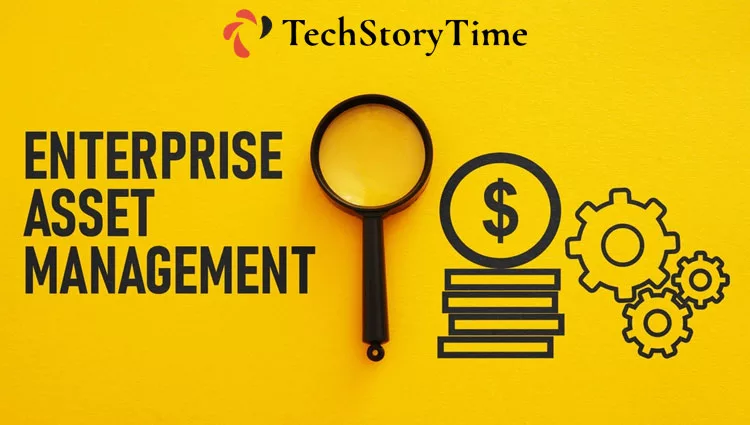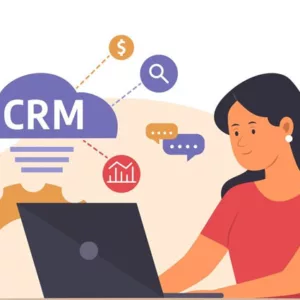Enterprise asset management software can manage, monitor, and report all critical assets to minimize the cost of operation. The EAM software is generally used by asset-intensive companies such as natural gas companies, transport companies, and manufacturing. Manually keeping track of large amounts of assets can be a significant challenge.
EAM software helps businesses improve their assets’ performance to increase the return on investment. This software allows companies to maintain workplace safety and reduce the cost of management.
Many of the EAMs also have the option to add a basic financial management suite, including accounts payable, ledgers, human resource functions, and more.
Every asset-focused business should rely on enterprise asset management software to better track its assets.
This guide reviews the 5 best advantages of enterprise asset management software.
Which kind of Assets Does EAM Manage?
An EAM software can manage different types of physical assets. Moreover, they can provide comprehensive health reports of assets. Here’s a list of assets an EAM software can manage:
- EAM can manage your manufacturing assets, such as conveyor systems and industrial ovens.
- You can also manage fleet assets, such as cars and trucks.
- EAM helps you manage and monitor facility assets like security systems and elevators.
- You can easily manage construction assets like cranes and other construction tools.
5 Best Enterprise Asset Management Solutions
1. ManageEngine AssetExplorer – Best Overall
- Free Trial – 30 days
- Starting Price – $995 per year for 250 IT assets
- Customer Support – 24/7
ManageEngine AssetExplorer is the best web-based EAM solution you’ll come across. The tool is full of numerous helpful tools to ease asset management.
If you’re a new business and don’t have experience with asset management, ManageEngine AssetExplorer can be a bit overwhelming. The good thing is that you can try out the software with the 30-day Trial. You’ll learn whether the solution meets your business’s requirements or not.
ManageEngine AssetExplorer also comes with 24/7 technical support, which is rare.
| Pros of ManageEngine AssetExplorer | Cons of ManageEngine AssetExplorer |
|---|---|
| Rich tool offering with mature technology | No mobile app |
| Easy to set up | Not ideal for small businesses with limited IT staff |
| Affordable pricing | |
| Familiar with Windows-style UI |
2. InvGate Assets – Best for Small to Medium-Sized Businesses
- System Compatibility – Windows, macOS, Linux
- Support Features: Unlimited access by phone and online for subscribers.
- Pricing – Only by quote
InvGate Assets has all the essential tools for tracking assets and inventory for small and medium-sized businesses. It has an easy installation and UI, making it the perfect choice for limited-sized teams.
InvGate’s alert system is easy to set up, notifying users instantly of any issues with the assets. The solution runs seamlessly on Windows, macOS, and even Linux.
The only thing we didn’t like about InvGate is no pricing on their website. There are only 3 plans – Insight, Service Desk, and Assets. To get a quote, you must fill out the form and wait for the company to contact you.
| Pros of InvGate | Cons of InvGate |
|---|---|
| Seamless and easy setup | Limited reporting features |
| Ideally prized for small-mid sized businesses | |
| Simple navigation process | |
| Can set up alarms to show problems with assets |
3. Ivanti IT Asset Management – Best for Custom Reports
- System Compatibility – Windows
- Support Features – 24/7 access for subscribers
- Pricing – Available only via quote
There are a lot of reasons to like Ivanti IT Asset Management solution. Out of all the features, the one that stands out the most is its reporting capabilities. You can either rely on the pre-built reports or build custom reports that meet your requirements better.
Ivanti has everything a business needs to track and efficiently manage IT assets throughout its lifecycle. While Ivanti can tap into mobile and desktop workspaces, it doesn’t work on the cloud.
When it comes to pricing, Ivanti follows the same methodology as InvGate. The pricing is based on the number of nodes that require support. Ivanti only counts the number of devices that use the software. There’s no pricing on the website. You’ll have to contact Ivanti via phone or contact form to get a custom quote.
| Pros of Ivanti | Cons of Ivanti |
|---|---|
| Mobile and desktop workspace | No cloud-based service |
| Simple setup process | Lengthy, hardware-focused installation process |
| Customizable workflows and processes | |
| Familiar Windows-style interface | |
| Multiple tech support options |
4. Asset Panda – Best Value for Money
- Pricing – $1,500/year for 500 assets
- Trial Period – 14 days
- Support Features – Online knowledge base access and free training
Asset Panda is an incredible cloud-based asset management system suitable for all sizes of businesses. Apart from offering premium features such as custom reporting and unlimited users, it can also be configured to meet any business’s niche requirement.
Asset Panda also allows users to add photos, documents, and videos to data files. It also has a mobile app that can scan barcodes and add assets when needed. Small companies that don’t have IT teams will find it more challenging to set up the solution.
If you’re not sure Asset Panda is the ideal solution for your business, you can try it for 14 days before investing money.
| Pros of Asset Panda | Cons of Asset Panda |
|---|---|
| Completely configurable dashboard | Longer learning curve |
| Perfectly made mobile app with barcode scans | No network discovery |
| Includes videos, images, and voice recordings | |
| Excellent technical support for customers |
5. MMSoft Pulseway – Best Mobile Application Offering
- Reporting Options – On-screen and by email
- Trial Period – 14 days
- Starting Price – Starting at $22 for 20 workstations
MMSoft Pulseway is a robust, user-friendly mobile system for monitoring and managing assets. Pulseway is a mobile-first asset monitoring and management software. Allowing business owners to keep track of assets on the go.
If you’re looking for a mobile-based asset management system, you can’t go wrong with MMSoft.
Pulseway offers users an ultra-modern and feature-rich experience, regardless of the device. Users can access the entire range of system functionalities via a beautiful interface. Moreover, machine connectivity is almost instantaneous.
A downside to Pulseway is limited reporting capabilities. There are just a couple of pre-built reports. If you want to make a new report, you just can’t.
| Pros of MMSoft | Cons of MMSoft |
|---|---|
| User-friendly mobile client | Limited reporting |
| Great user experience | Managed assets have to be networked |
| iPad app offers access to all the features |
Benefits of Enterprise Asset Management Software
1. Increment in Assets Life Cycle
Best assets management software helps businesses to understand the condition of assets. It ensures that asset purchase, operations, maintenance, and disposal are done most efficiently.
It also provides detailed insight allowing businesses to manage assets in a better way.
- Planning: It identifies the need to purchase new assets.
- Acquisition: Helps you understand whether or not you are acquiring any new assets.
- Operation and Maintenance: It also helps improve assets’ efficiency and performance.
Disposal: It allows businesses to calculate the asset’s depreciation value and update it before disposal data.
2. Reduction of Maintenance Costs
EAM software helps prevent machine failures because it contains real-time IoT (Internet of Things) sensors monitoring, real-time data analysis, and other modern EAM features.
The predictive maintenance feature allows companies to use historical data to predict machine failure dates.
Through EAM, you can schedule asset maintenance as well. Its assets maintenance module is also linked with inventory management. Moreover, procurement management helps ensure sufficient spare parts stock depending on the assets’ maintenance schedule.
3. Deduction In Cost of Ownership
EAM software helps businesses to manage physical assets, especially multiple high-value assets. With the help of this software, you can easily track the functionality and performance of all the assets.
EAM software helps you calculate your total ownership cost for your physical assets. Ownership costs include expenses, Acquisition costs, estimated depreciation, and additional wear and tear.
4. Improvement In Assets’ Uptime And Reliability
EAM software also helps businesses improve their assets’ uptime and reliability. Its preventive maintenance program ensures your equipment should achieve its optimum utility.
EAM software sends notifications about your asset’s performance and reliability to minimize devastating failures.
For example, Suppose you are running a truck using EAM software. In that case, it ensures the efficiency and performance of the car because it notifies you about oil changes, servicing, and scraping.
5. Provides All The Information at a Place
You all know that EAM software relies on data that helps you predict and prevent downtimes, track inventory, etc. The EAM software stores all the essential information in one centralized, easy-to-access place.
EAM software breaks down all the information systematically in its dashboard. Thus, managers can easily watch the physical assets’ performance in one place. In addition, it also sends essential emails and notifications to ensure assets’ reliability.
Conclusion
The research manager of IDC’s enterprise program Juliana Beauvais said, “EAM is the management of physical assets that an organization needs to function.” According to her, financial management is integral to enterprise assets management.
Through EAM, you can define an assets maintenance schedule as well. Its assets maintenance module is also linked with inventory management and procurement management to ensure sufficient spare parts stock depending on the assets’ maintenance schedule.





